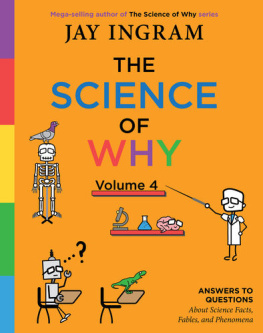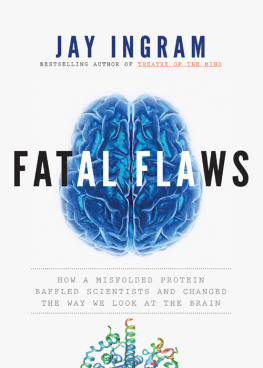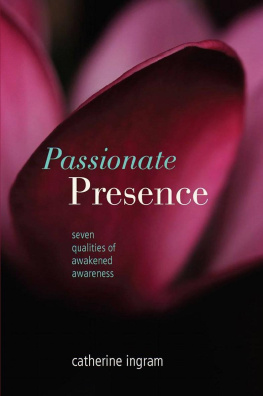Matthew Ingram - Retreat
Here you can read online Matthew Ingram - Retreat full text of the book (entire story) in english for free. Download pdf and epub, get meaning, cover and reviews about this ebook. year: 2020, publisher: Watkins Media, genre: Religion. Description of the work, (preface) as well as reviews are available. Best literature library LitArk.com created for fans of good reading and offers a wide selection of genres:
Romance novel
Science fiction
Adventure
Detective
Science
History
Home and family
Prose
Art
Politics
Computer
Non-fiction
Religion
Business
Children
Humor
Choose a favorite category and find really read worthwhile books. Enjoy immersion in the world of imagination, feel the emotions of the characters or learn something new for yourself, make an fascinating discovery.
- Book:Retreat
- Author:
- Publisher:Watkins Media
- Genre:
- Year:2020
- Rating:5 / 5
- Favourites:Add to favourites
- Your mark:
- 100
- 1
- 2
- 3
- 4
- 5
Retreat: summary, description and annotation
We offer to read an annotation, description, summary or preface (depends on what the author of the book "Retreat" wrote himself). If you haven't found the necessary information about the book — write in the comments, we will try to find it.
Retreat — read online for free the complete book (whole text) full work
Below is the text of the book, divided by pages. System saving the place of the last page read, allows you to conveniently read the book "Retreat" online for free, without having to search again every time where you left off. Put a bookmark, and you can go to the page where you finished reading at any time.
Font size:
Interval:
Bookmark:



Published by Repeater Books
An imprint of Watkins Media Ltd
Unit 11 Shepperton House
89-93 Shepperton Road
London
N1 3DF
United Kingdom
www.repeaterbooks.com
A Repeater Books paperback original 2020
Distributed in the United States by Random House, Inc., New York.
Copyright Matthew Ingram 2020
Matthew Ingram asserts the moral right to be identified as the author of this work.
ISBN: 9781912248780
Ebook ISBN: 9781912248797
All rights reserved. No part of this publication may be reproduced, stored in a retrieval system, or transmitted, in any form or by any means, electronic, mechanical, photocopying, recording or otherwise, without the prior permission of the publishers.
This book is sold subject to the condition that it shall not, by way of trade or otherwise, be lent, re-sold, hired out or otherwise circulated without the publishers prior consent in any form of binding or cover other than that in which it is published and without a similar condition including this condition being imposed on the subsequent purchaser.
Printed and bound in the United Kingdom by TJ International Ltd
For Catherine
CONTENTS
CHAPTER ONE: COUNTERCULTURE
Counterculture
Fifty years since its peak, the counterculture continues to beguile us. The impact of the revolutions it fostered in music, politics, feminism, ecology, computing and fashion reverberate to this day. Its critics argue that it failed to transform society; but did it ever stand a chance? The backlash which came immediately afterwards, a reaction against its communal and spiritual values, gave us the Eighties, a decade it seems we still occupy. However, the foundations of that aborted bridge into space remain, their potential nowhere more evident than in the countercultures ideas of wellness.
The term counterculture was coined in 1969 by the theorist Theodore Roszak in his book The Making of a Counter Culture: Reflections on the Technocratic Society and Its Youthful Opposition . Roszak pointed out that: It strikes me as obvious beyond dispute that the interests of our college-age and adolescent young in the psychology of alienation, oriental mysticism, psychedelic drugs, and communitarian experiments comprise a cultural constellation that radically diverges from the values and assumptions that have been in the mainstream of our society at least since the Scientific Revolution of the seventeenth century. Even at its coinage, four-quarters of what Roszak saw as defining the movement related to wellness.
Commentators pick different dates to define the chronology of the counterculture. Some split it into two: the Beat generation and the hippie era. The hippies can be dated as starting with Bob Dylans electric performance at the Manchester Free Trade Hall in May 1966, or at The Human Be-In in Golden Gate Park in San Francisco in January 1967. There is a distinction between the two eras, but key players straddle both to the degree that it makes no sense to pull them apart. Other commentators, like Ken Goffman, argue for the existence of a perennial counterculture reaching back to the prophet Abraham and forward to Acid House. Our countercultural timeline starts with Ginsberg reading Howl at the Six Gallery in San Francisco on 7th October 1955. It ends with Allen being removed from the bill on Bob Dylans Rolling Thunder Revue Tour in 1975, with he and his partner Peter Orlovskys demotion to baggage porters. Lest we judge Dylan too harshly, its worth remembering that he was driving the bus. These two dates bookend a massive cultural experiment, the collective project of an entire generation of the Western bourgeoisie to reimagine the ethics of society; but also to reach further into what the artist Marcel Duchamp described as regions which are not ruled by time and space than any other generation before or since.
In their classic Marxist study from 1976, Subcultures, Cultures and Class, John Clarke, Stuart Hall, Tony Jefferson and Brian Roberts of the CCCS describe the context of the times: not only has the period since the war witnessed the rise of quite distinctive kinds of expressive movements among middle-class youth, different from the school or student cultures of the pre-war period, but, as we get closer to the 1970s, these have attracted, if anything, more public attention and reaction than their working class counterparts. We point, of course, not simply to the growing involvement of middle-class youth with the commercialised popular culture and leisure associated with the Youth Culture, but the appearance of quite distinct sub-cultural currents: the Hippie movement; the various deviant drug, drop-out and gay subcultures; the elements of cultural revolt in the student protest movements, etc. Most significant is the widespread cultural disaffiliation of broad sectors of middle-class youth the phenomenon of the Counter-Culture.
In the short-term, the project of the counterculture failed. Its vital energy and psychic explorations were coopted and sold by the music business, its use of psychedelics rapidly sheared into phantasmal entertainment and poly-drug addiction, and the methodologies of wellness it espoused degraded from transformative potentialities into mere salves. It is easy, therefore, to be cynical about it. The left-wing theorists of the CCCS, however, did not disparage it: The new individualism of Do your own thing, when taken to its logical extremes seemed like nothing so much as a looney caricature of petit-bourgeois individualism of the most residual and traditional kind This does not, however, exhaust their oppositional content. At the simplest level their emergence marked the failure of the dominant culture to win over the attachment of a sector of its brightest and best. The disaffiliation from the goals, structures and institutions of straight society was far-reaching. Here, the counter-cultures provided, at the very least, that social and cultural breathing-space a hiatus in the reproduction of cultural relations in which a deeper disaffiliation was hatched. It cracked the mould of the dominant culture.
Central to the cracking of this mould, and a perennial motif of the counterculture, was the idea of the transformation of the unitary individual. The transpersonal psychologist and pioneer of LSD psychoanalysis Stanislav Grof explained how: The 1960s brought a wave of interest in spirituality and consciousness exploration that manifested itself in many different ways, from a renaissance of the ancient and Oriental spiritual practices to experiential psychotherapies and self-experimentation with psychedelic drugs. At that time, many people became deeply involved in meditation and other forms of spiritual practice, either under the guidance of a teacher or on their own.
Wellness
Todays concept of wellness is geared around not so much health as the absence of disease. It concerns the maximising of the individuals potential in a capitalist economy. Nation states, multinational corporations and global insurance companies are stakeholders in this strategic prevention of sickness. These strategies are ratified as the achievement of specific biometric goals. Wellness forms a natural alliance with the modern form of the talking cure, cognitive behavioural therapy which, on the surface at least, seeks to modulate psychological wellbeing by strategic interventions to curtail rumination and redirect negative thought patterns and actions. The way in which techniques of meditation have become mindfulness, and are practiced in apps tethered to global conglomerates intent on harvesting data, is another example of how what Roszak would call the military-industrial complex has danced around the issue of sickness. There is an Orwellian quality of doublespeak to the idea of wellness in that it is, to a large degree, the shiny rebranding of suffering. This is a suffering to which quick fixes can be marketed.
Next pageFont size:
Interval:
Bookmark:
Similar books «Retreat»
Look at similar books to Retreat. We have selected literature similar in name and meaning in the hope of providing readers with more options to find new, interesting, not yet read works.
Discussion, reviews of the book Retreat and just readers' own opinions. Leave your comments, write what you think about the work, its meaning or the main characters. Specify what exactly you liked and what you didn't like, and why you think so.













